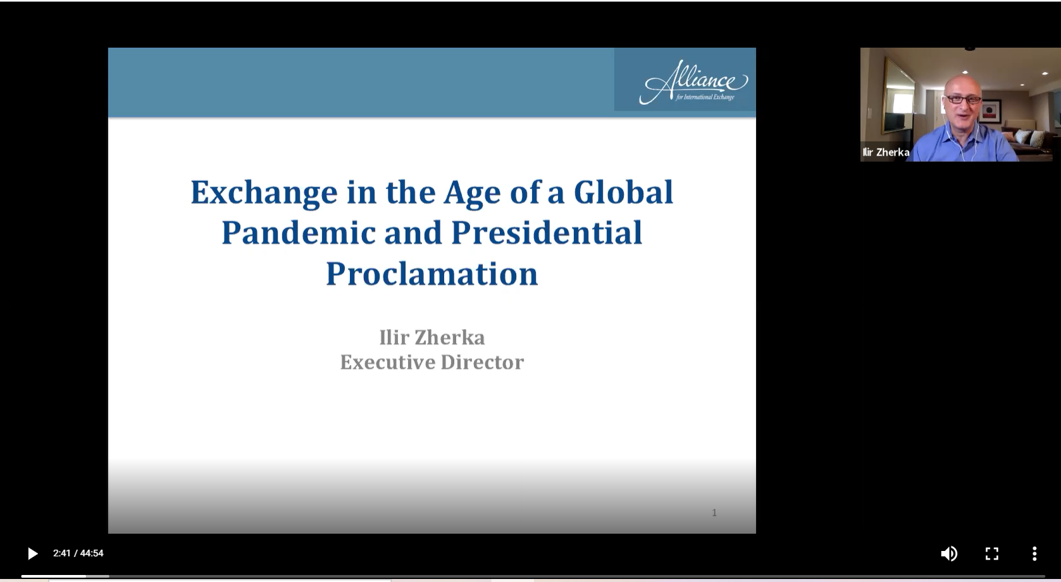US Exchange Program update 2020
The cultural exchange sector has tackled a multitude of challenges, with the outbreak of COVID-19 halting US Exchange Programs followed by the Proclamation suspending the issue of certain J-1 Visas. The upcoming election provides cautious optimism as Ilir Zherka, Executive Director of the Alliance for International Exchange discussed in his timely update at WYSTC 2020 Online.
Impacts of the Presidential Proclamation on Exchange Programs
The Presidential Proclamation issued in July of 2020 has prevented new Exchange Program participants from obtaining a J-1 Visa, making it impossible to run such programs.
Program sponsors, providers and other stakeholders have voiced their support of the programs by collecting 100+ signatories, to support the plaintiffs that are fighting the Proclamation, facilitated by the Alliance of International Exchange. The recent injunction ruling from the federal court means a select number of programs for au pairs, teaching programs, COVID-19 support and state–sponsored programs can go ahead. The implementation of this injunction is slow and a wide range of programs are still unable to run.
Despite the changes to the Proclamation, there are challenges ahead. The Alliance of International Exchange is working with the US Department of State to interpret the injunction to continue their support of Exchange Programs. The cultural exchange community have come together in support J-1 Visa and US Exchange Programs, by sending 44,000 letters to congress, the President and Secretary of State in support of the programs, as well as using social media as a tool to raise awareness resulting in over 60,000 impressions on the hashtag #SaveJ1.


2020 election
The upcoming Presidential election on Tuesday, 3 November presents two different scenarios for the sector. Both are predicted to come with challenges.
If President Trump is re–elected, the impacts of the Presidential Proclamation will continue into 2021. There is also a risk that the recent Federal Court injunction could be appealed. The immigration strategy currently led by Trump will continue to restrict US Exchange Programs even further. The current administration has also sought to cut funding by 57.6% in 2021 to reduce the number of programs to a few “core” experiences.
Joe Biden has a better understanding of US Exchange Programs, as previous Senate Chair for the Foreign Relations Committee. Since 2018, the democratic house has increased funding support for J-1 and Exchange Programs. There are reforms proposed to the immigration agenda to localise workforces to support small businesses. Although there is evidence that confirms that Exchange Programs do not hinder the local working population, it is likely reforms will be made. There is a need for cautious optimism; however, lobbying support for Exchange Programs is essential.
In conclusion, the next year will continue to challenge the sector and businesses that support youth mobility, and the election results may determine the extent of these challenges. The network that surrounds the sector is a strong community that takes action; this will be of the utmost importance in the future.

Recent Comments